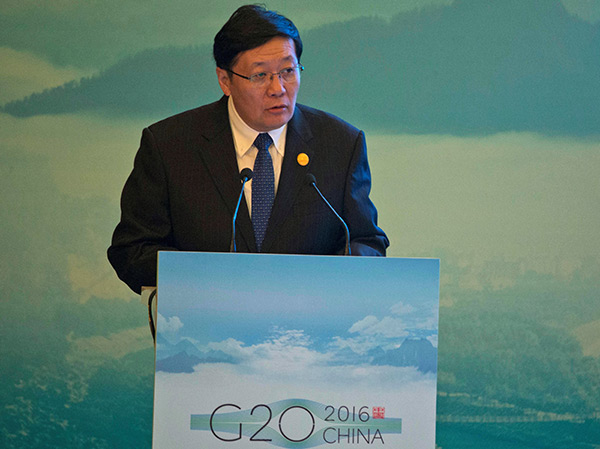 |
|
Lou Jiwei, China's Minister of Finance speaks at the High-level Tax Symposium held in Chengdu in Southwestern China's Sichuan province, July 23, 2016. [Photo/Agencies] |
Speaking at the G20 meeting of finance ministers and central bank governors in Chengdu, Sichuan province, Lou said China will be cautious in using public funds to intervene in the market unless there is a "systemic crisis".
Intervention is "not an issue to be taken lightly", he said. However, prudence does not mean doing nothing when businesses are faced with increasing difficulties. "The government will do more to improve the regulatory regime," he added.
Lou expressed his concern about the increasing risk from too-big-to-fail financial corporations. The government needs to act early, by using regulations, to prevent crisis from happening, he said, which is why China will continue to come up with new policies to facilitate reform on both the demand and supply sides.
Wang Yiming, an official with the State Council Development Research Center, a high-level think tank, briefed on the Chinese debt situation at a forum on the sidelines of the finance meetings.
He said it is a great challenge but had not reached the level of a systemic breakdown. There are major economies plagued by even worse debt problems, he said, adding that reform is the only answer to China's problem.
Christine Lagarde, managing director of the International Monetary Fund, stressed the role that structural reform can play amid rising political uncertainty from the Brexit vote and continued financial market volatility.
"Well-designed structural reforms can lift both short- and long-term growth and make it more inclusive," she said, referring to economic development that creates opportunity for all segments of a society and distributes the dividends of increased prosperity.
Ensuring a sustainable level of debt has been listed a key target for G20 economies, according to a statement on Sunday.
Contact the writers at [email protected]
